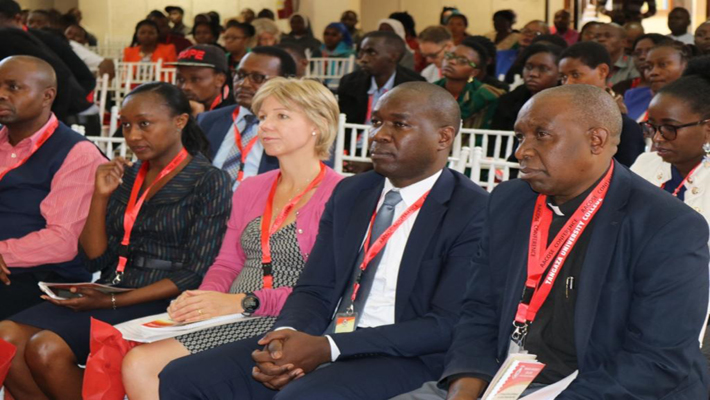NAIROBI, OCTOBER 2, 2018 (CISA) – The Vice Chancellor of the Catholic University of Eastern Africa (CUEA) Rev. Prof Stephen Mbugua, has urged university graduates to embrace entrepreneurship in order to curb the rising unemployment in the country.
Speaking during the Second Annual Conference on Social Entrepreneurship organized by Tangaza University College, Rev Prof Mbugua told university graduates to change their mindset on white collar jobs, and apply their knowledge in inventions and entrepreneurship.
“We need to ask young people what they want to invent rather than what they merely want to be, the current trends in global unemployment levels are due to poverty and over dependency on already established careers and technologies and this is what social entrepreneurship tends to address,” he said.
Rev Prof Mbugua noted that there are many opportunities awaiting right approaches to entrepreneurship, which can help to eradicate poverty and foster economic growth in the country.
“We need not to end at the research findings or concept incubation; we must move to mass production of the findings. We need many voices of ‘eureka’ from the academic and research world to come out and make it known, teach it, experiment it and make it usable for the good of the society,” he added.
He noted that entrepreneurship should help to reduce the tax burden on the society by creating alternative sources of wealth and income generation to government and workers.
“There can be no growth in us if we cannot network, connect, share, partner and learn from one another because it is through these opportunities that we get feedback on our particular enterprises,” Rev Prof Mbugua said.
The Tangaza University College Second Annual Conference on Social Entrepreneurship 2018 was held between September 20 and 21 guided by the theme “Contextualizing and shaping social Entrepreneurship in Africa”.
The conference brought together scholars and researchers, to discuss emerging concepts and explore topics in social enterprise, innovation, sustainability and how they apply to Africa.
